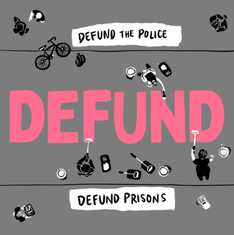 We can choose to build safe communities! We, the undersigned, are invested in building safe communities for all. We believe that as a society we are capable of preventing harm and violence differently than the failed punitive approaches governments fund today. And we believe that it’s possible to come together to STOP the expansion of policing and imprisonment, as well as move away from a reliance on policing, jails, prisons and immigration detention. We believe that we can invest, instead, in real safety for our communities by addressing the root causes of harm and violence in our society. We are living through a historic moment of protest against the rampant colonial, racial, gender, sexual and economic injustice in our society. This is guided by a renewed understanding that we can choose another way forward. For some time now, Black, Indigenous, racialized, and gender-oppressed people, migrants, those living with mental health issues and disabilities, people who use criminalized drugs, and people without housing have experienced the harms of policing and incarceration instead of support. We recognize the violent infrastructure of prisons and policing also negatively impacts the land, water, air, and other-than-human beings through environmental degradation, disrupted relations, and capitalist extraction. Our public funding of policing, jails, prisons and immigration detention vastly exceeds the funds allocated to public housing, income assistance, childcare and mental health support. We can choose differently. We wish to stand on the right side of history. We believe we can build a society that values human and other-than-human life and the land, and we commit to shifting away from using badges, guns and cages to manage inequality. Since early winter, rising COVID-19 rates have again made people held in congregate settings like homeless shelters, psychiatric centres and prisons more acutely vulnerable to outbreaks. We must release as many people that are confined in these settings as possible and start building communities capable of meeting everyone’s needs now. This is crucial from an anticolonial perspective, a Black liberation perspective, a racial justice perspective, and a public health perspective: it is vital towards meaningfully addressing anti-Black and anti-Indigenous racism, especially. Today, we are prepared to commit to building a society that chooses to meet people’s needs instead of locking them away, with a three-prong strategy: Defund/Dismantle/Build. Defund STOP investing more public or private money into policing and prison infrastructure STOP increasing budgets to hire more police and prison officers STOP building new police stations, detachments and headquarters, courthouses, jails, prisons, penitentiaries and immigration detention centres COMMIT to dramatically cutting municipal, provincial and federal funding for carceral infrastructures. 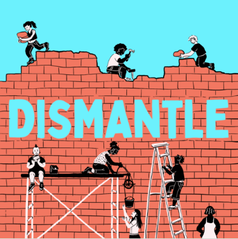 Dismantle REDUCE the use of policing and prisons over time with the goal of ending punitive injustice within a generation REMOVE police from all positions within essential social services including but not limited to: schools, mental health services and responses, family and youth support programming, and community support initiatives REMOVE arms and other military equipment from police, RCMP, military, border control, and prison officers to diminish their ability to injure, maim and kill human beings END the removal of Black and Indigenous children from their families into the state foster care system END labour union affiliations with all police, prison guards, and border guards, recognizing that these positions go against the larger stated goals of protecting worker interests END the detention and deportation of migrants and the criminalization of migration. 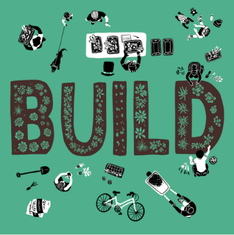 Build Alternatives INVEST funds diverted from police and prisons toward building safety for those most impacted by surveillance and policing: Black, Indigenous, unhoused, migrant, people who use [criminalized] drugs, and people living with disabilities. This includes investments in long-term free and affordable housing for all, access to free and healthy food, clean water, and community gardens for all, free public transit, harm-reduction supports for drug users, child care, free post-secondary education, and regularization of migrants/status for all. INVEST in attending to the root causes of harm in our society: gross racial, gender, sexual and economic inequality. INVEST in community-based anti-violence initiatives’ transformative justice capacity, and supports like non-carceral mental health care, community-based resources, and public safety approaches INVEST in Care, Wellness and Healing, including non-coercive mental healthcare, wellness resources, non-coercive drug and alcohol treatment, peer support networks, community support counsellors and mediators, universal childcare, supports for family and kinship care, family support and youth programs that promote learning, safety, and community care, INVEST in community centres, public libraries, recreational and cultural centres, schools, libraries, and other free public spaces. ENACT the return of the land to Indigenous peoples (Land Back). HONOUR existing treaties and Indigenous interpretations of treaties. HONOUR Indigenous sovereignty, including Indigenous governance and non-carceral Indigenous legal orders such as those outlined in the Unearthing Justices Resource Collection of 500+ Indigenous grassroots initiatives for the MMIWG2S+ , neighborhood-based trauma and healing centres INVEST in land redevelopment for decommissioned police and prisons under the guidance of the Indigenous nations on whose land the buildings sit. CREATE a reparations model for survivors and families of people harmed by police, based on this Chicago model: repair, restoration, acknowledgment, cessation and non-repetition (https://chicagotorture.org) Authored by/Collaborators: Anti-Carceral Group Abolition Coalition Anti-Poverty NL Black Lives Matter- Toronto Criminalization and Punishment Education Project East Coast Prison Justice Society Free Lands Free Peoples Indigenous Joint/Joy Action Committee Justice Exchange Prisoner Correspondence Project Saskatchewan-Manitoba-Alberta Abolition Coalition Toronto Prisoners’ Rights Project Wellness Within https://www.choosingrealsafety.com/
Graphics from Choosing Real Safety website
3 Comments
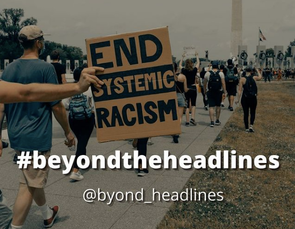 We are so happy to share the link for a great conversation we had in late December 2020 with the fabulous folks behind the radio show "Beyond the Headlines" which airs Mondays weekly from 11:00am to 12:00p, EST on CIUT 89.5 fm. You can find a recording of the radio broadcast here if you didn't catch it live! www.beyondtheheadlines.net/episodes/in-conversation-with-rittenhouse Beyond The Headlines (BTH) is a nationally-syndicated, one-hour current affairs radio show and podcast. Housed within the Munk School of Global Affairs and Public Policy, our student producers aim to take listeners beyond the immediacy of our daily news, and provide a greater understanding of the various policy issues that make headlines. And of course, CIUT 89.5 fm is Toronto's preeminent listener supported public radio station. We were honored to be invited to speak about RIttenhouse's work in community education, and about the movements for abolition, prison decarceration, defunding the police and community held Transformative Justice as critical strategies for addressing systemic racism & classism. The radio segment includes BTH Junior Producer Faria Amin, Harm Reduction & Transformative Justice worker Michael Nurse, as well as Rittenhouse ED & TJ Facilitator Naty Tremblay. So many people are tuning into the viable possibilities of Transformative & Healing Justice as alternatives to Punitive Carceral Justice. People are turning to frameworks and strategies for community held responses to conflict, violence & harm that center healing & transformation of harmful behaviours without replicating the violence of isolation and disposability. Here are some some essential reads to get you started on your learning journey!
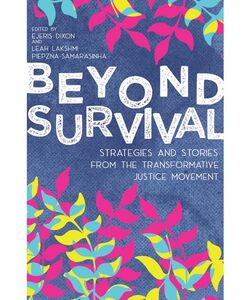 Beyond Survival: Strategies and Stories from the Transformative Justice Movement In this collection, a diverse group of authors focuses on concrete and practical forms of redress and accountability, assessing existing practices and marking paths forward. They use a variety of forms—from toolkits to personal essays—to delve deeply into the “how to” of transformative justice, providing alternatives to calling the police, ways to support people having mental health crises, stories of community-based murder investigations, and much more. At the same time, they document the history of this radical movement, creating space for long-time organizers to reflect on victories, struggles, mistakes, and transformations. Ejeris Dixon (Editor); Leah Lakshmi Piepzna-Samarasinha (Editor) For purchase at AK Press View a conversation with Leah Lakshmi Piepzna-Samarasinha & Laura Flanders - Mutual Aid Justice & Beyond Survival 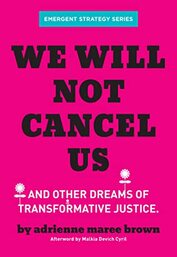 We Will Not Cancel Us: And Other Dreams of Transformative Justice In We Will Not Cancel Us, movement mediator adrienne maree brown reframes the discussion for us, in a way that points to possible paths beyond our impasse. Most critiques of cancel culture come from outside the milieus that produce it, sometimes even from its targets. Brown explores the question from a Black, queer, and feminist viewpoint that gently asks, how well does this practice serve us? Does it prefigure the sort of world we want to live in? And, if it doesn’t, how do we seek accountability and redress for harm in ways that reflect our values? Written by adrienne maree brown. With an Afterword by Malkia Devich-Cyril. You can purchase the book here. You can read the original blog post which became the reader on adrienne's website here. This list is not exhaustive. There are many more books to explore & we plan to keep sharing along with reviews and other goodies. Let us know what you think of these & feel free to suggest others! Rittenhouse will be digging into our archive to share vintage TJ & Rj resources as well as producing some new print resources in 2021, so stay tuned!
#Support Community Held Transformative Justice! 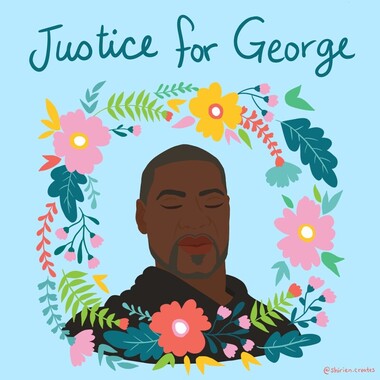 If we want to take Reconciliation seriously and to support the Black Lives Matter movement, we need to fundamentally change our understanding of justice in this country. No doubt you heard about the death of George Floyd (and so many others), and saw calls to defund police. If the presence of police makes you feel safe rather than unsafe, it’s hard to imagine living without them. Even if you don’t feel that way, dismantling a fundamental piece of our societal structure isn’t easy to envision. It’s not just the police that embed structural racism into the criminal justice system, though. Indigenous Canadians are 10 times more likely to be incarcerated than non-Indigenous Canadians. They represent 30% of all admissions to incarceration, despite accounting for about 4% of the adult population. And when they are incarcerated, their children are more likely to be taken away from them, and put into care. There are more Indigenous children in the child welfare system now, than were in Residential schools at any given time. So, what can we do? Fortunately, a lot of amazing people have been trying to create systems of true justice for a long time. Most of their ideas and the programs that have been established are classified broadly as “Restorative Justice” (RJ) or “Transformative Justice” (TJ). The basic ideas of RJ and TJ are that when harm is done, justice requires us to look at the big picture. What led to the harm? Are there underlying factors or provocations that need to be addressed? If we’re not going to resort to capital punishment or locking the person responsible away for life, then we need to find ways to reintegrate them into the community, and (ideally) ensure that something similar is unlikely to occur again. We need to recognise that all people make bad choices sometimes, and find ways to move forward, find meaning, and restore community. Good parenting advice no longer advocates punishment as an effective means of addressing negative behaviour, but punishment is still the basis of our criminal justice system. The idea of Restorative Justice is that we should try to restore relationships and community after harm has occurred. The idea of Transformative Justice is that often harm arises because of dysfunctional situations that we need to transform rather than restore in order to build community. Rittenhouse is a Toronto-based organisation that has been promoting and running RJ and TJ programs for over 20 years. Your support would go a long way toward keeping these programs running, and working to implement systems of true justice in Canada! Post by Joy Morris - Daughter of Rittenhouse Founder Ruth Morris Freelance designer Shirien Damra’s tribute to George Floyd @shirien.creates |
AuthorRittenhouse Archives
February 2021
Categories |
Rittenhouse: A New Vision
Healing Communities Through Transformative Justice
|
Contact Us
Rittenhouse: A New Vision
6 Trinity Square Holy Trinity Radical Community Organizing Hub Toronto, Ontario, M5G 1B1 |
Our work would not be possible without the generous support of our funders and donors. Consider making a donation today to continue the legacy of Transformative Justice in our communities.
|


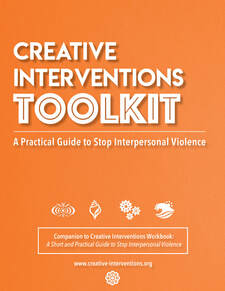
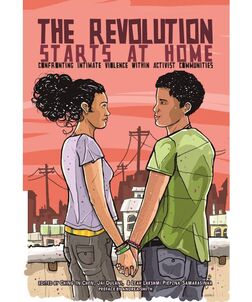
 RSS Feed
RSS Feed